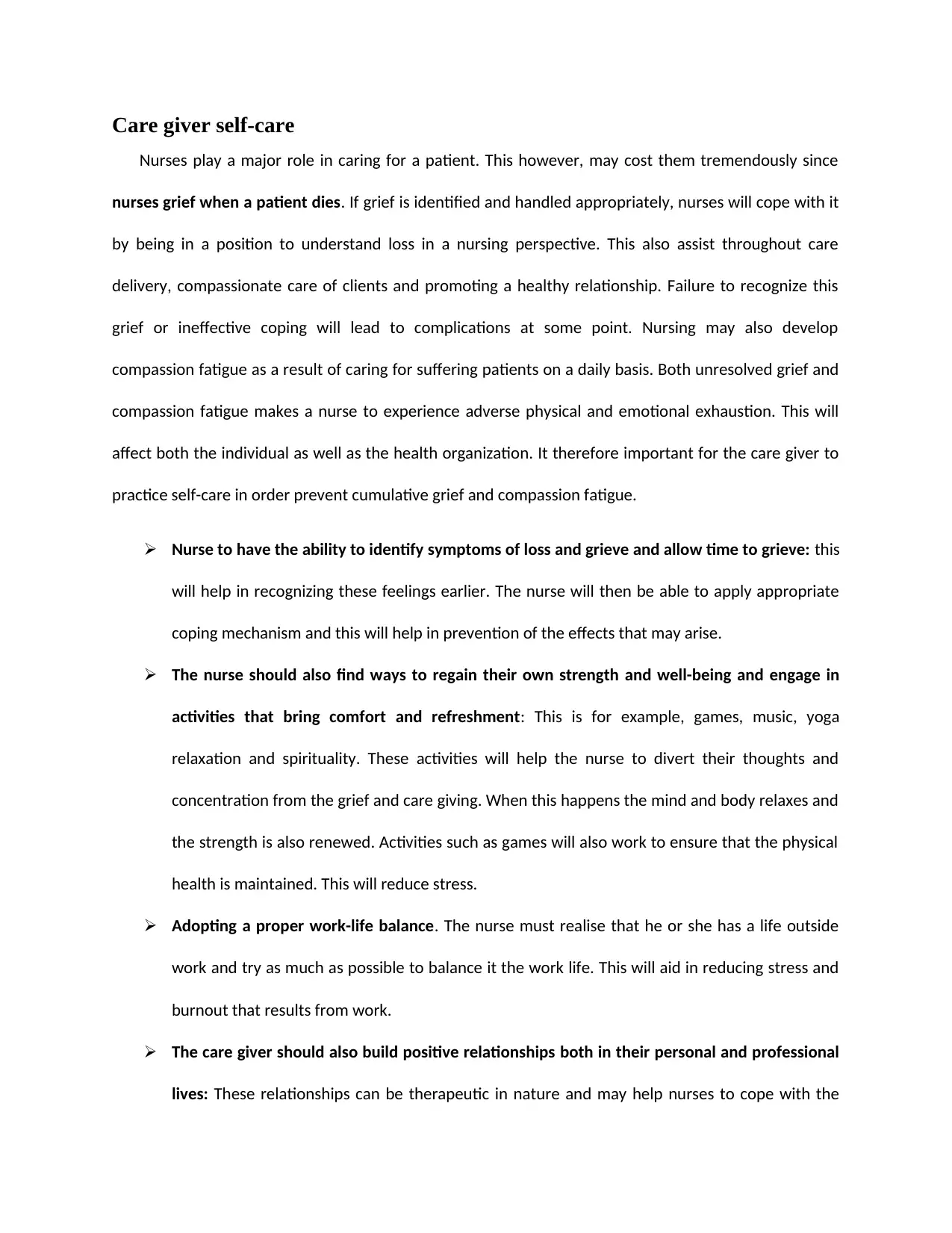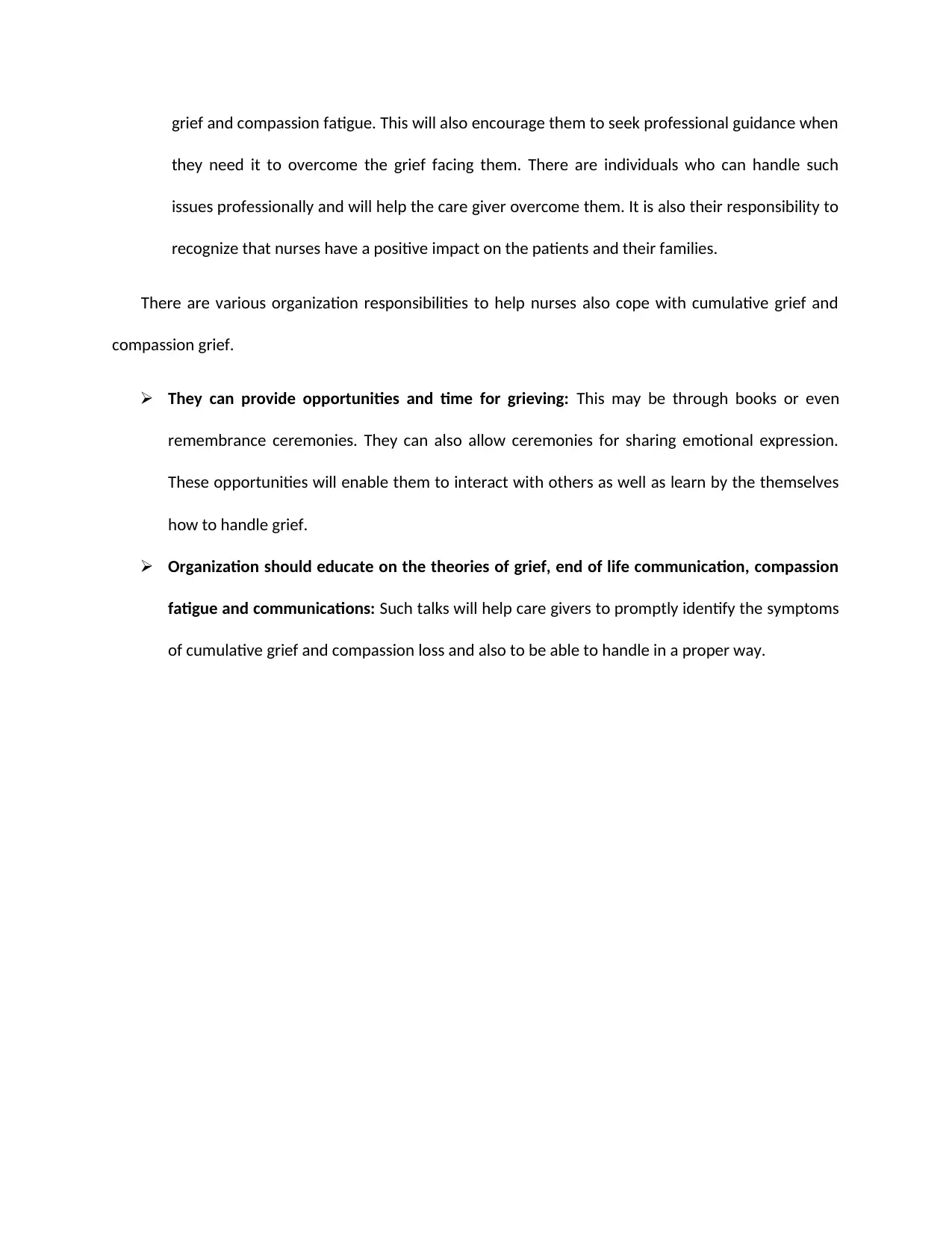Self-Care Strategies for Nurses: Managing Grief and Compassion Fatigue
VerifiedAdded on 2021/11/23
|3
|585
|87
Report
AI Summary
This report delves into the critical topic of caregiver self-care, specifically focusing on the challenges faced by nurses in managing grief and compassion fatigue. It emphasizes the profound impact of these emotional burdens on both individual nurses and the healthcare system. The report highlights the importance of recognizing and addressing grief through various coping mechanisms, such as allowing time for grieving, engaging in activities that promote well-being, and establishing a healthy work-life balance. It also underscores the significance of building supportive relationships and seeking professional guidance when needed. Furthermore, the report acknowledges the role of healthcare organizations in supporting nurses by providing opportunities for grieving, educational resources, and promoting open communication. The report references Houck (2014) to support its findings, providing a comprehensive understanding of the issue and offering practical strategies for promoting the well-being of nursing professionals.
1 out of 3










![[object Object]](/_next/static/media/star-bottom.7253800d.svg)